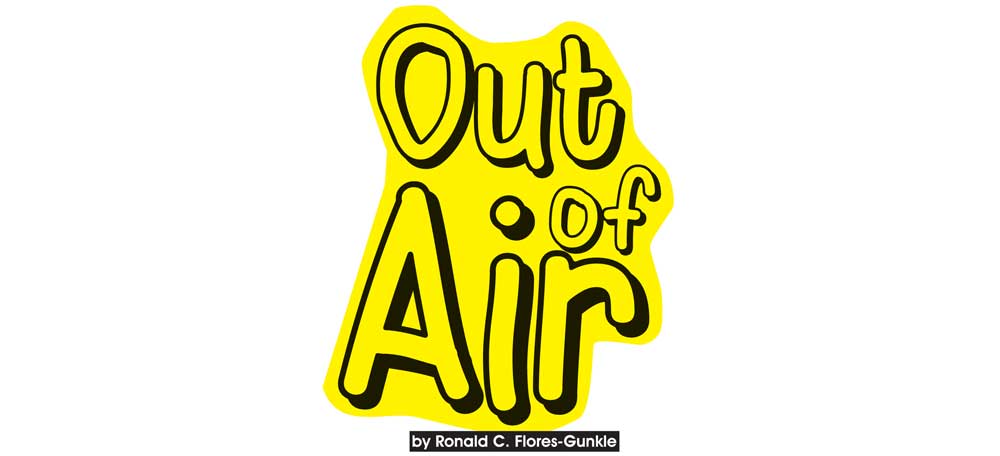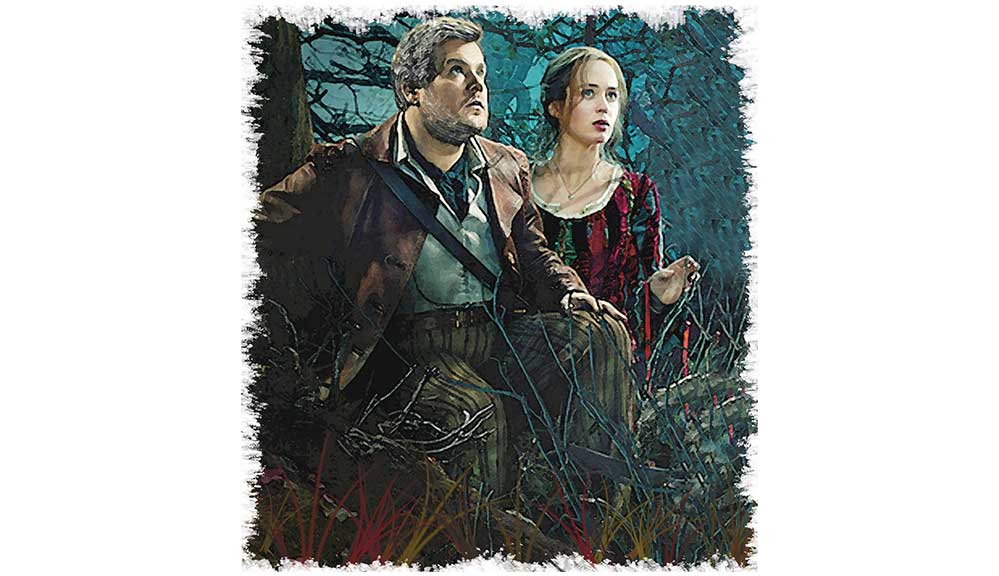An Epidemic
- 13 Apr - 19 Apr, 2024

Barrio Quebrada Negra, Puerto Rico, 1945.
The path from our house to the hut of the anciana was very narrow. It had once been wide, when Papi and the peones drove the cows along it to the baths by the stream. It was an event that I barely remember, the cries of the beasts, the bitter smell of the cloudy liquid, the men in their rough straw hats prodding and pushing and yelling oaths, the rush of the water over the stone dam.
Mami didn’t want me to go, but Papi let me, giving Chencho, the foreman, strict instructions to keep me and Canela from getting close until Papi was ready. When they finished and the peones led the cows back toward the farm, I would hand Canela to Papi and the dog would whimper but not resist when Papi bathed him. Ticks, Papi explained. Even today, a whiff of flit can bring back a vision of Canela asleep next to me in my childhood bed.
The path was so overgrown that I could not pass without struggling to avoid the razor-sharp leaves of the wild bamboo, or worse, get tangled in the thorns of the zalza. I was frightened that their sharp fingers would clutch my blouse and whip around me, imprison me, pull me to the ground.
Papi marched through it all; malevolent nature ricocheted right off his high black boots. He was so tall that he sometimes had to duck to avoid the lower branches of a tree. He would look back from time to time to make sure I was there, carefully negotiating the path, my eyes wide, my skirt clutched around my body like a shroud. There were times he was so far ahead I could not even see him as he barged through the brush while I teetered on the trail.
I knew he would be waiting for me in the open space where once the cows were corralled before they were driven to the baths. There were no posts or broken rails there, nothing remained but an expanse of bare ground, a place I once bravely reached with Canela by my side, before she was dead and before the fever. A year is a long time and in another even the narrow path between our farm and la anciana’s would submit to the dreadful disorder of nature.
In the searing sunlight, slatted shutters of shadows closed in on me. I ran blindly and in my panic, I ran into him. His grey eyes peered down at me from the sunburnt maze of lines on his leathery face. He turned his gaze toward la anciana’s hut.
The fever, if that’s what it was, seemed to have possessed me. I didn’t feel warm, I didn’t feel cold, I wasn’t shivering. I just felt frightened and alone. I could not see over or through the darkness that was always close around me. I stood there waiting for him to move, shaking my skirt, shaking out pieces of bamboo and grass and twigs and stickers that came to it in my rush to catch up. Then he did something very unusual, he took my hand and led me up the path.
The hut was barely distinguishable from the stands of patchouli that surrounded it. It was tucked between what we called mountains – steep volcanic hills hard to clamber up, giddy to climb down. I saw nothing, heard only the crunch of his boots in the gravelly earth. When at last I looked up, we had reached it.
The hut was made long before I was born, so I have no idea what threads darned it together. I remember hairy paperings of palms inside and out, boards sliced from the trunks of trees dead before the last Spaniards were driven from the island. It was, I think, thatched in straw; at least it was yellow and it was gathered in clumps like in the fields where the cows were not allowed to graze.
It had a peculiar perfume that years and years later I sometimes sensed in bathrooms, bars of soap, steam upon streams. A small stream ran below the hut into the valley beginning at a rock outcropping – sometimes a trickle, sometimes a torrent, always cool. Hidden in the trees, mahogany trees, almond trees – I thought then that the name was “all man” trees – and long-legged Indian Laurel trees.

The waterfall was a place to escape, the place I wish I had escaped that day Papi took me to the witch. That’s really what she was, but I don’t think I remember my father ever saying that. He called her simply la anciana, the old woman, and indeed she was that. From my point of view she was older than the mountains, she was older than the papyrus along the stream, she was older than anything I’d ever seen. Her hair was long, white. In the sunlight, the few moments that I saw it in the sunlight, it was yellow, but I don’t know if it was the sun singing a chorus, or there was something silent hidden in it, some memory of something written in the book of the past.
She was always dressed the same. Today we would call it a shift, but it was longer, it reached the floor. I don’t remember it having any colour. Like her hair it has faded into something that looked like it belonged to the earth, a part of the earth, part of the landscape, part of the shadows, part of the rocks when they tarried in the shade.
Gray, the cancelled colour of mist, of clouds when the sun abandons the sky, or when it is too bright to look up; belligerent bamboo, a slick and stinging hurt, warning me: wait; the hut, an ancient apparition, built before breath: it was almost as if I was being punished for being sick.
The heavy thatch had caved in on one part of the house but either the old woman didn’t notice or didn’t care or found that that part of the house was no longer necessary for her. There was a makeshift door that could be shoved shut and held by a bar in the middle with rusted clasps. I was told that this was to keep out the wind when the bad weather came but then I also remember that she had, just like us, a small shed made entirely of tin, bent into shape, a smaller imitation of an even smaller house, but this one with a tiny opening for her to crawl into and stay in when the hurricane tried to shake her out and carry off the shambles of her hut.
Papi called to her, a wounded sound you might call hope. She touched my head and drew me in. My memory creeps into crevasses, but then fragments are found: intimate, intact, intense.
I was next in front of the kitchen, a box fastened to an open frame. There was new grass in the box attached to the frame, cans filled with water to wash tin dishes or cook malanga, boil roots, gray greens, pots of paleness.
I did not hear him go.
She guided me to the center of the hut. Her hands were cold: paper on my cheeks, bones on my bones, my shoulders still. Roots crept from my feet into the earthen floor. Her hands moved like the fluttering of birds above my head. I closed my eyes – fear, fancy, fair escape – yet the birds flew round and round. Listening to the stuttering of their beaks, I felt whiffs of air from their wings like the first drops of rain on the batey, or coolness rising from rocks when you drink from a spring.
I started when she murmured something I could not understand; a curse, I thought, or a blessing, or a command. I was small and she was smaller, so her arms were wild, high, reaching above me, in tremulous motion, circling my hair, my neck, my shoulders, my torso, my waist, my thighs, my legs, my feet.
I think now that the spirit that she believed inhabited my body had been bound up by her murmured incantations and the weaving of her fingers and her hands, to be cast out, or down into the depths from which it came. Then I knew nothing. Fear fled from me like the invisible birds in that dark hut, rays of light like arrows shooting from the haze above our heads.
The old woman fell to the floor at my feet. I was sure she was dead. Her eyes were open but they did not move, even as I stepped over her, even as I tugged at the swollen door, even as I fled into the light, grasping a rock to keep from falling off the spinning earth.
When I awoke it was night, a night like day, the glitter from the sky rolling over me in waves, the clouds blanking the moon, disclosing the moon, a ball of blue glory, warm and cold, young and old, a new moon made old by the shudder of sighs rolling down the mountain and searching for the sea.
The fever or whatever it was that had held me in its gloomy grasp was gone. I felt whole. I felt my legs strong, longing to carry me, the warmth of the rock, holding me firm, planted in place, the shadows lifted. I heard a song. Through the dangling door I could see her silhouette framed by the kitchen window, the moon throwing litters of light on her hair. She sang:
Soon the moon
Will run and hide.
The sun will bide
Its tide upon the earth
And warm, or charm or harm
The child upon the rock.
Oh child,
Hold tight,
Ignore the light,
Embrace the brightness of the night.
Forget the dawn that hovers on the hill
And brings ill news of age and death and sorrow,
Grasp this earth tonight,
Forget tomorrow.
Tomorrow comes
Unbidden,
Unwelcome,
Unforgiven.
Soon the moon
Will run and hide,
The sun will bide
Its tide upon the earth.
Circle by circle,
Day by day,
Unless you stay,
You’ll lose your way.
The world is wide,
The way is long:
No place,
No time, to hide.
Hark my song,
Hark the magic of my tune,
Embrace the moon,
Stay, my child, stay.
Before she turned – I would not see her eyes – I ran and ran. The moon ran with me, shutters of bright whipped through the tall grass when I reached the remnant of the road, the sentry patchouli my guardians as I ricocheted through them, finding my way. I saw centuries of spirits rise from fissures in the earth, the cradle of fathers and mothers and their fathers and mothers, the earth crowded and crenulated with cadavers. A chorus of cries of dead babies rose, like hummingbirds, their wings a frenzied flurry of ancient bones. I was not afraid.
I was a child but I was not of the night. When I reached the old baths, night collapsed on me in a blanket of beauty, stars diamonded in the dew along the stream, glazed the remnants of the dam, glistened on the edging sand. I slipped out of my shroud, grasped the warm in my hands, baptized myself in the benevolent blend of movement, aching echo and crystalline cleansing of clear water.
How long I lingered in that amniotic pool, I don’t know. I remember being startled by the sun as it burst through the all-man trees. I arose and dressed.
Refreshed, renewed, reborn, I ran wildly, startling Chencho at his chores. Nearly out of breath, I waved to the wind that carried me home.
COMMENTS